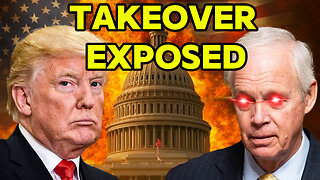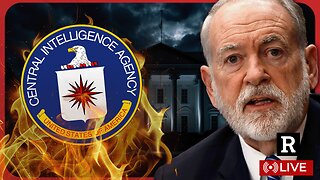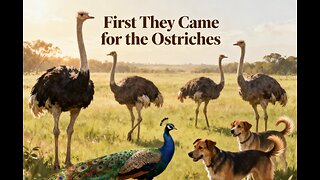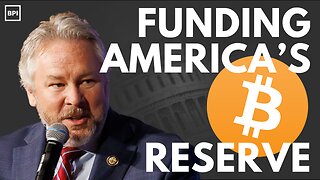Premium Only Content

History of Germans in 5 minutes
History of the Germans
Chronicles of Germanic Heritage
Welcome to our channel! Today, we're diving into the History of the Germans, exploring their profound impact on European history and culture.
Early Germanic Tribes
The Germanic tribes, including the Ingaevones, Istvaeones, and Irminones, each had unique cultures and languages. The Suebi were known for their military strength and interactions with the Romans, while the Cherusci, led by Arminius, famously defeated the Romans in the Battle of the Teutoburg Forest in 9 AD, symbolizing Germanic resistance.
Goths and Vandals
The Goths, divided into Ostrogoths and Visigoths, played crucial roles in the fall of the Western Roman Empire, with the Visigoths sacking Rome in 410 AD. The Vandals migrated from the Baltic to North Africa and sacked Rome in 455 AD, establishing a powerful kingdom.
Migration to Britain
The Angles, Saxons, and Jutes migrated to Britain during the early medieval period, significantly influencing the cultural and linguistic development of the British Isles.
Technological Advances
The transition to the Iron Age brought significant technological advancements, improving weaponry, tools, and overall economic and military capabilities.
Cultural and Religious Syncretism
As Germanic tribes interacted with other cultures, they blended Roman, Celtic, and indigenous beliefs, creating a unique religious landscape.
Migration Period
The movement of Germanic tribes across Europe spread their languages and cultural practices, contributing to the fall of the Western Roman Empire.
Ancient Germanic Societies
These societies had unique social structures and beliefs about the afterlife, like Valhalla and Hel, and were influenced by Celtic art and religion.
Roman Influence
Roman interactions introduced writing systems and urbanization to Germanic tribes. Key events include:
Battle of the Teutoburg Forest (9 AD): Arminius and the Cherusci ambushed and defeated three Roman legions.
Marcomannic Wars (166–180 AD): Showcased Germanic military strength and led to peace treaties.
Migration Period (4th to 6th Century): Germanic tribes migrated into Roman territories, contributing to the fall of the Western Roman Empire.
Theoderic the Great (493–526 AD): Theodoric, leader of the Ostrogoths, established a kingdom in Italy, blending Roman and Germanic governance.
Spread of Germanic Tribes
Germanic tribes like the Visigoths, Vandals, and Anglo-Saxons migrated and established kingdoms throughout Europe.
Formation of Early Germanic Kingdoms
These tribes formed kingdoms, such as the Ostrogothic Kingdom in Italy, Anglo-Saxon kingdoms in Britain, and the Visigothic Kingdom in Iberia. The Frankish Empire emerged under Clovis, who converted to Christianity.
Viking Age (Late 8th to Early 11th Century)
The Viking Age was marked by exploration, trade, and conquests, influencing Germanic social norms, art, architecture, and economy.
Holy Roman Empire
Charlemagne and the Carolingian Dynasty: Charlemagne revived centralized rule, blending Roman and Germanic traditions.
Otto I: The first German king of the Holy Roman Empire, Otto I promoted cultural and educational development.
Frederick Barbarossa: Expanded the Holy Roman Empire through military campaigns and political centralization.
Reformation and Beyond
Martin Luther: Sparked the Protestant Reformation, reshaping Christianity and Germanic culture.
Thirty Years' War (1618-1648): This devastating war significantly impacted Germanic territories, leading to population loss and economic decline.
Modern Germany
Otto von Bismarck: Unified Germany, established the German Empire, and implemented social reforms, shaping European geopolitics.
Napoleonic Wars and 1848 Revolutions: These events fueled nationalist sentiments and calls for a unified German nation.
Social Changes and Labor Movements: Industrialization led to the rise of the working class and social reforms.
Germanic Heritage in Contemporary Society
Germanic heritage influences modern society through language, culture, art, and traditions. Germany's contributions to philosophy, literature, and science have had a global impact.
Global Influence
Germany's economic and technological leadership continues to shape the world, rooted in its rich history and cultural legacy.
Thank you for watching! Don't forget to like, share, and subscribe for more fascinating historical insights.
-

Donald Trump Jr.
2 hours agoCan California be Golden Again? Interview with Gubernatorial Candidate Steve Hilton | TRIGGERED Ep.293
16.2K40 -
 LIVE
LIVE
BonginoReport
2 hours agoTrump, Vance “SNUBBED” by Never-Trumper Cheneys - Nightly Scroll w/ Hayley Caronia (Ep.182)
3,347 watching -
 1:25:13
1:25:13
Kim Iversen
2 hours agoMKUltra Victims Are SUING — The CIA's Darkest Secret EXPOSED
75.5K35 -
 16:30
16:30
Stephen Gardner
2 hours ago🚨OVAL OFFICE EXPOSES TRUMP TAKEOVER – FILIBUSTER NUKED!
8.73K14 -
 1:34:03
1:34:03
Redacted News
3 hours agoBREAKING! CIA FURIOUS & EMERGENCY WHITE HOUSE MEETING - ISRAELI SPY CAUGHT MEETING WITH AMB HUCKABEE
113K106 -
 1:22:06
1:22:06
vivafrei
4 hours agoCFIA Goes After a REFUGE? Charlie Kirk Missing Evidence "Uncovered"? Democrats are Epostein Simps!
119K56 -
 1:44:33
1:44:33
The Quartering
5 hours agoTrump Calls For Hangings, McDonalds SNAP Controversy, The Demonic Relationship In Wicked & More
146K65 -
 21:40
21:40
Bitcoin Policy Institute
7 hours agoCongressman Warren Davidson Unveils the “Bitcoin for America Act” | Spotlight Series #1
27.1K -
 LIVE
LIVE
LFA TV
21 hours agoLIVE & BREAKING NEWS! | THURSDAY 11/20/25
1,034 watching -
 LIVE
LIVE
freecastle
8 hours agoTAKE UP YOUR CROSS- Let your eyes LOOK directly FORWARD, and your gaze be STRAIGHT before YOU!
29 watching